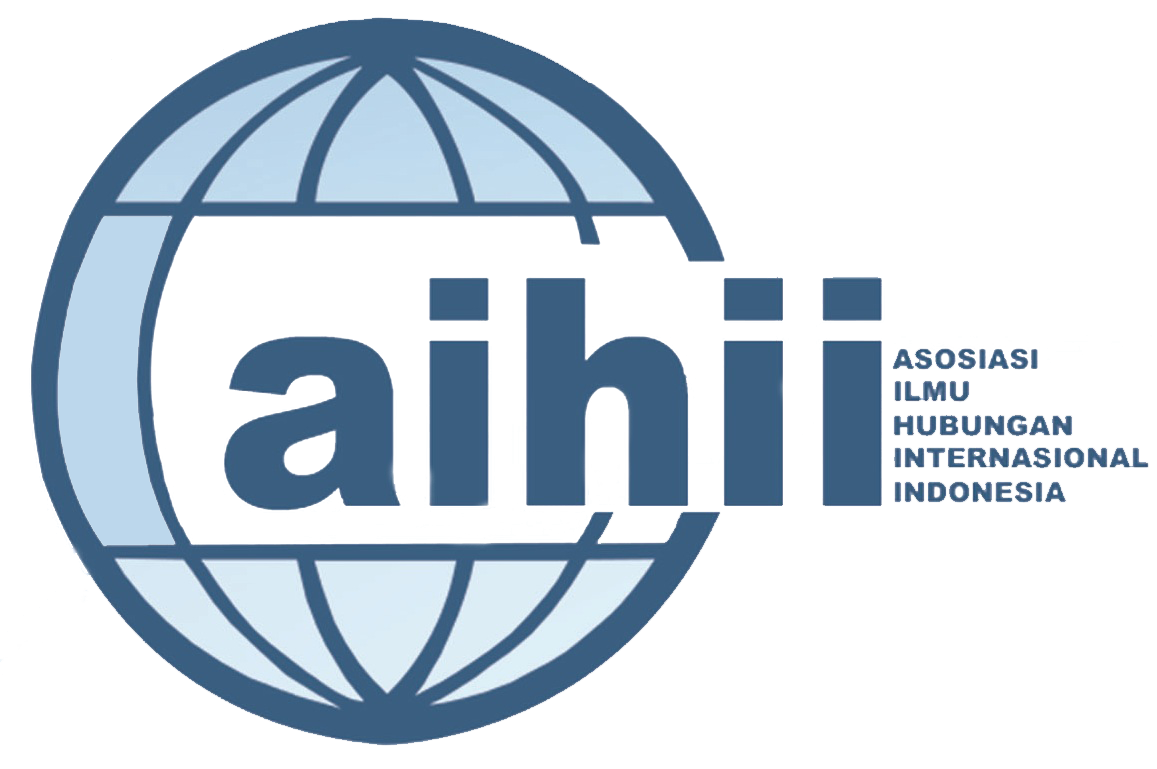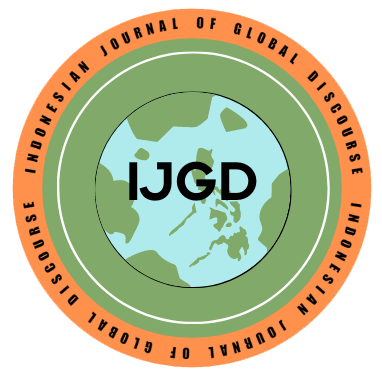Analysis of United States Involvement in the Palestine and Israel Conflicts
DOI:
https://doi.org/10.29303/ijpss.v3i2.89Keywords:
Jerussalem, foreign policy, national interestAbstract
The purpose of this research is to outline the United States' national interest in recognizing Jerusalem as Israel's capital, as well as the consequences of doing so. The qualitative research approach was applied. The majority of the data was gathered through book research, observation, documentation, and internet data searches. According to the study's findings, the United States' recognition is an endeavor to serve its country's national interests, which has influenced ties between the two nations, which have grown closer since the recognition
References
Alexandrov, M. (2003). The Concept of State Identity in International Relations: A Theoretical Analysis. Journal of International Development and Cooperation, 10(1), 33–46. https://core.ac.uk/download/pdf/197279417.pdf
Chomsky, N. (2016). International Terrorism in the Real World. Pluto Press.
Deutsche Welle (DW). (2020, January 28). Trump reveals Israeli-Palestinian peace plan. https://www.dw.com/en/trump-reveals-israeli-palestinian-peace-plan/a-52179629
Hussain, S. (2021). The US Recognition of Jerusalem: Aspects and Implications. International Journal on Economics, Finance and Sustainable Development., 299–310. https://doi.org/10.31149/ijefsd.v3i3.1503
Jackson, R., & Sorensen, G. (2012). Introduction to International Relations: Theories & Approaches (5th ed.). Oxford University Press Inc.
Oktaviani, S. (2017). Kepentingan Amerika Serikat Dalam Pengakuan Yerusalem Sebagai Ibukota Israel Tahun 2017 [Unikom]. [Thesis]. https://elibrary.unikom.ac.id/id/eprint/1927/13/UNIKOM_SILVI OKTAVIANI_JURNAL.pdf
Perwita, A. A. B., & Yani, Y. M. (2005). Pengantar Ilmu Hubungan Internasional. PT. Remaja Rosdakarya.
Rahmatullah. (2015). Peran Amerika Serikat dalam Menciptakan Perdamaian dan Penyelesaian Konflik Israel dan Palestina. Jurnal Ilmiah Widya, 3(1), 49–55. http://digilib.mercubuana.ac.id/manager/t!@file_artikel_abstrak/Isi_Artikel_948617576793.pdf
Ruhiat, F., & Akim. (2020). Klaim Sepihak Donald Trump Terhadap Kota Yerusalem Sebagai Ibukota Israel Dalam Perspektif Konstruktivisme. Jurnal Ilmiah Hubungan Internasional, 16(1), 19–30. https://doi.org/10.26593/jihi.v16i1.3361.19-30
Ruslin, I. T. (1970). Memetakan Konflik di Timur Tengah (Tinjauan Geografi Politik). Jurnal Politik Profetik, 1(1), 1–23. https://doi.org/10.24252/profetik.v1i1a4
Stein, J. G. (2012). Foreign Policy Decision Making: Rational, Psychological, and Neurological Models. In S. Smith, A. Hadfield, & T. Dunne (Eds.), Foreign Policy: Theories, Actors, Cases (3rd ed.). Oxford University Press. https://doi.org/https://doi.org/10.1093/hepl/9780198708902.003.0007
Talim, G. L. (2018). Sengketa Yerusalem Antara Palestina Dan Israel. Lex Kajian Hukum & Keadilan, 2(1), 1–19. https://doi.org/https://doi.org/10.25139/lex.v2i1.1018
Taylor, A. (2017, December 11). Who supports Trump on Jerusalem? Europe’s anti-Islam politicians. Washington Post. https://www.washingtonpost.com/news/worldviews/wp/2017/12/11/who-supports-trump-on-jerusalem-europes-anti-islam-politicians/
Usher, B. P. (2018, May 15). Jerusalem embassy: Why Trump’s move was not about peace. BBC News. https://www.bbc.com/news/world-us-canada-44120428














